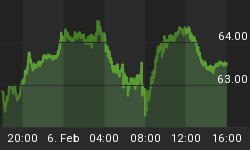I was pleased last week when we won a vote in the Financial Services Committee to include language from the Audit the Fed bill HR1207 in the upcoming financial regulatory reform bill. As it stands now, if HR 3996 passes, because of this action, the Federal Reserve's entire balance sheet will be opened up to a GAO audit. We will at last have a chance to find out what happened to the trillions of dollars the Fed has been giving out.
Finally, the blanket restrictions on GAO audits of the Fed that have existed since 1978 will be removed. All items on the Fed's balance sheet will be auditable, including all credit facilities, all securities purchase programs, and all agreements with foreign central banks. To calm fears that we might be trying to substitute congressional action for Fed mischief in tinkering with monetary policy, we agreed to a 180 day lag time before details of the Fed's market actions are released and included language to state explicitly that nothing in the amendment should be construed as interference in or dictation of monetary policy by Congress or the GAO. This left no reasonable objections standing and the amendment passed with a vote of 43 to 26.
This was a major triumph for transparency and accountability in government. With unprecedented turmoil in the financial markets, the people are demanding to know and understand the extent of the Federal Reserve's involvement in the creation of out-of-control business cycles, who they are helping, and how. We need information. The excuses for not giving out this information are flimsy at best, and the passage of this amendment is a major step to finally getting at the truth.
Of course I could not have done this without the help and support of many other members who have been strong allies in this fight. Having over 300 cosponsors was obviously helpful.
However, as great as this victory is, we have to remember that this amendment is attached to a bill that would give sweeping new powers to the Federal Reserve. The Fed has taken its mandate to maintain stable prices and full employment and used its immense power to help elite friends at the great expense of everyone else. The answer is not to increase their powers and ability to interfere in the economy, but that is what the legislation will do. It is a disaster waiting to happen, and unfortunately it looks as if it will pass.
At least with the Audit the Fed amendment attached to the bill, the Fed will not be able to do its destructive work in secret. The people will know exactly who the beneficiaries are of this immoral system of money management.















